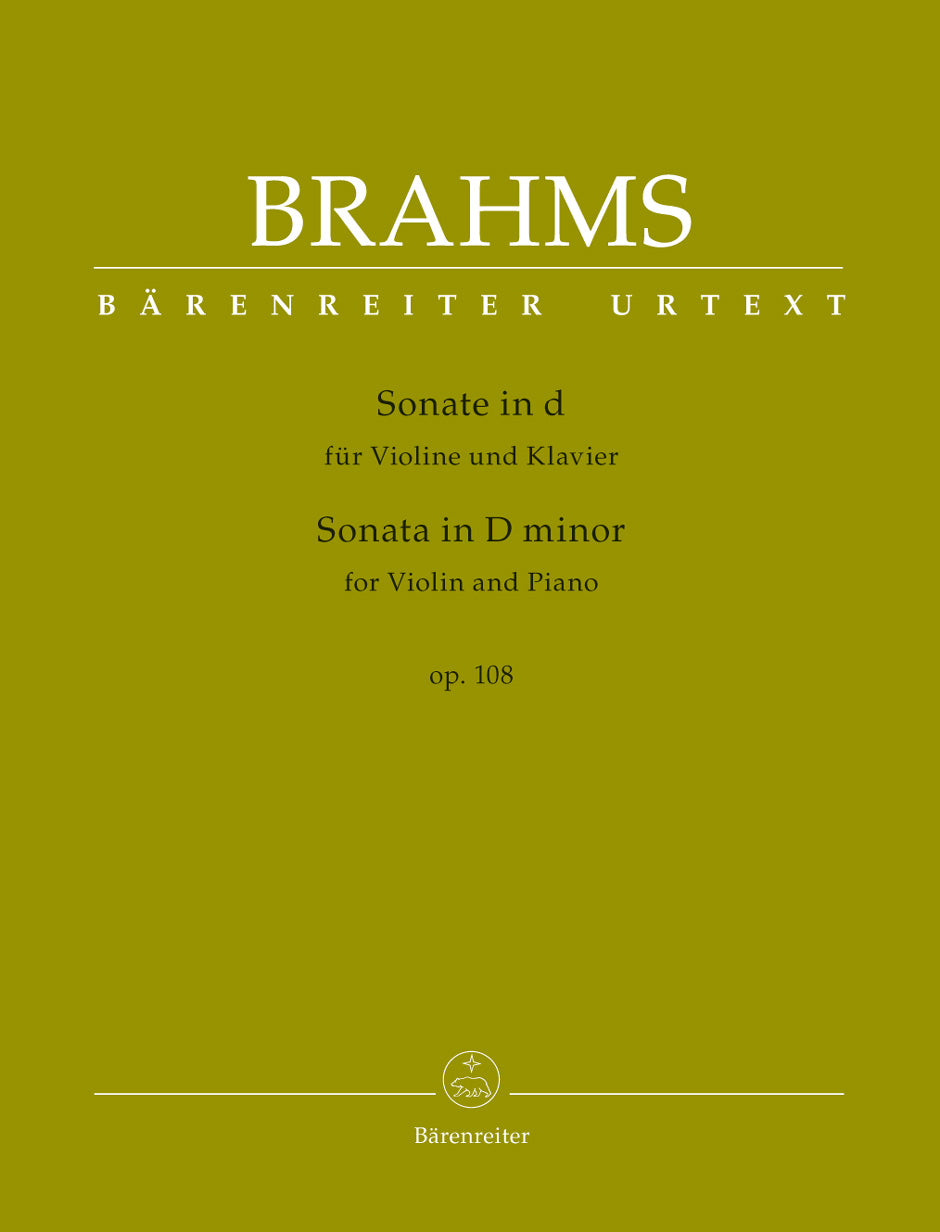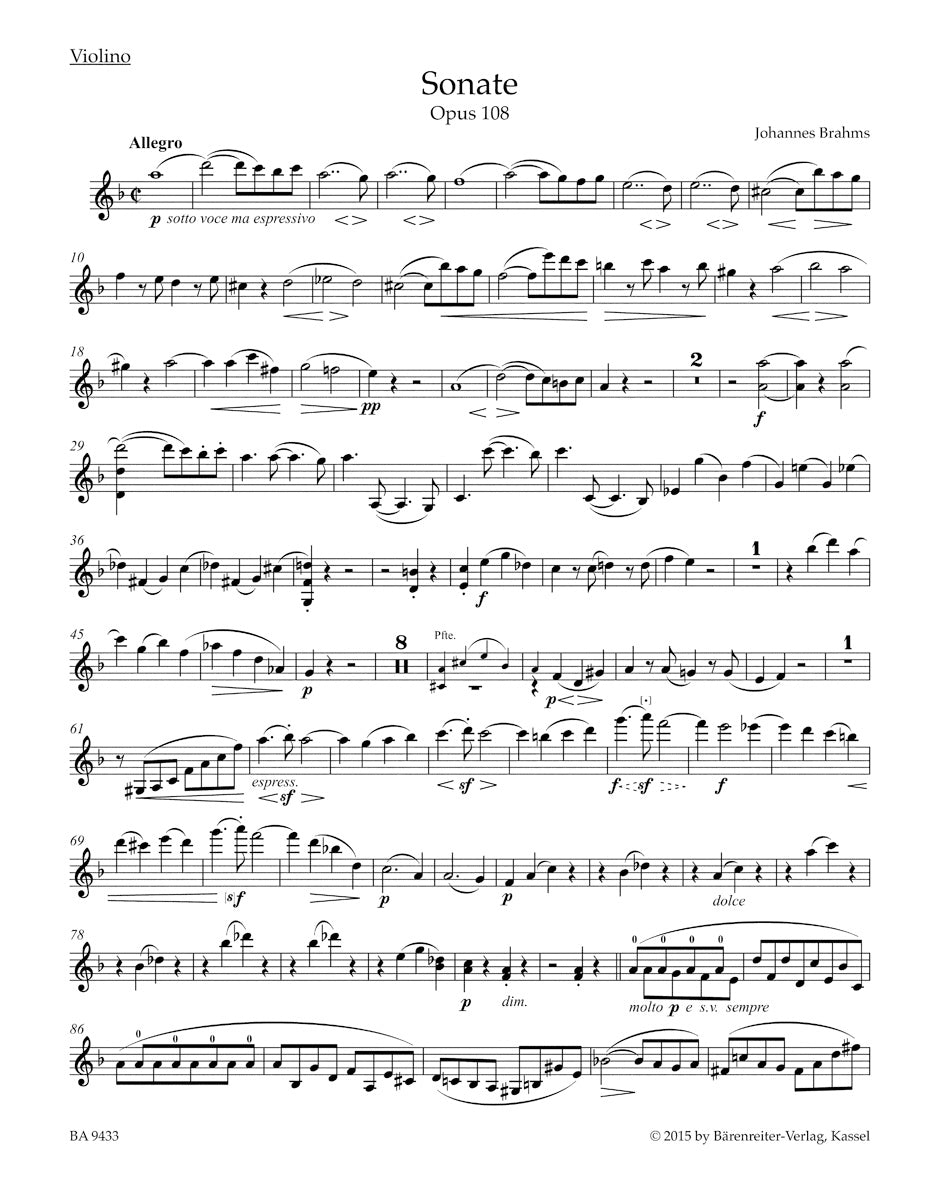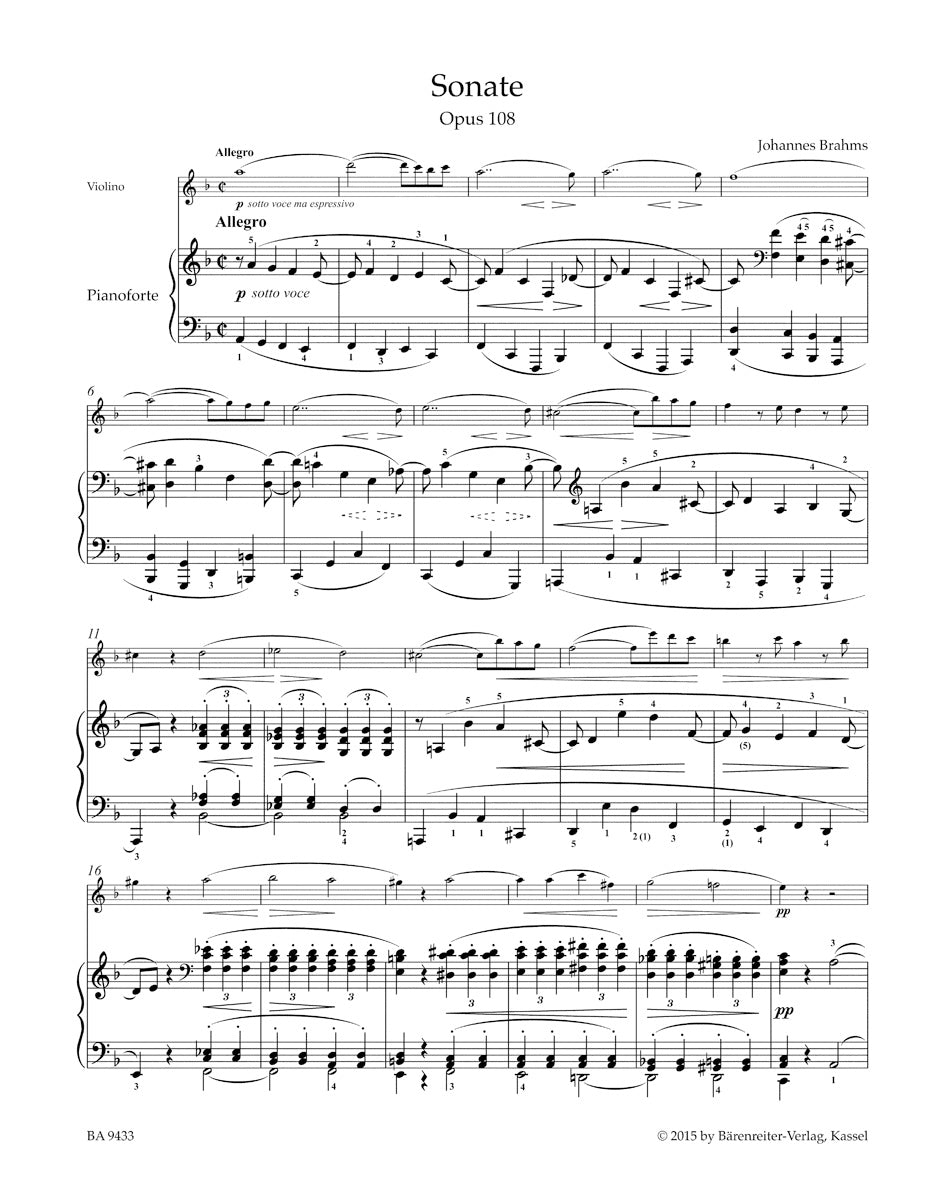


BARENREITER - 345062
Brahms Sonata for Violin and Piano in D minor op. 108
Composer: Johannes Brahms
Publisher: Bärenreiter
Instrumentation: Violin
Binding: Stapled
Dimensions: 12.2 in x 9.6 in
Pages: 56
Brahms Sonata for Violin and Piano in D minor op. 108
Juilliard Store
144 West 66th Street
New York NY 10023
United States
Choose options
Brahms Sonata for Violin and Piano in D minor op. 108
Juilliard Store
144 West 66th Street
New York NY 10023
United States
Brahms Sonata for Violin and Piano in D minor op. 108
Juilliard Store
144 West 66th Street
New York NY 10023
United States
Editor: Brown, Clive / Costa, Neal Peres Da
Orchestral scoring : V/piano
Product format: Performance score, part(s), Urtext edition
Binding: Stapled
Pages / Format: XLV, 36/10/10 - 31,0 x 24,0 cm
An important part of this editions is the extensive preface. Firstly it informs about the works‘ origins, its compositional process, pre-publication performances, its publication history as well as early reception. Truly remarkable is the unique Performance Practice Commentary. Here the editors take the premise that already a few decades after Brahms‘ death a widening gulf developed between the composer’s expectations and the performance practices of the early 20th century. In a very concrete and practical way, the editors summarize some of the key issues in understanding Brahms‘ notation with regard to rhythm and timing, dynamics and accentuation, dots and strokes, slurring and non legato, piano pedalling and overholding, piano arpeggiation and dislocation, string instrument fingering, string instrument harmonics and vibrato. In this way, the edition offers an exciting and often surprising insight in Romantic musical interpretation.
- A pioneering Urtext edition
- With an unmarked Urtext part
- With a second part including fingering and bowing based on the practices of Joseph Joachim and other contemporaries of Brahms
- With an extensive Performance Practice Commentary
- For further information on Romantic performance practice we recommend: “Performance Practices in Johannes Brahms‘ Chamber Music”, text booklet, BA 9600
